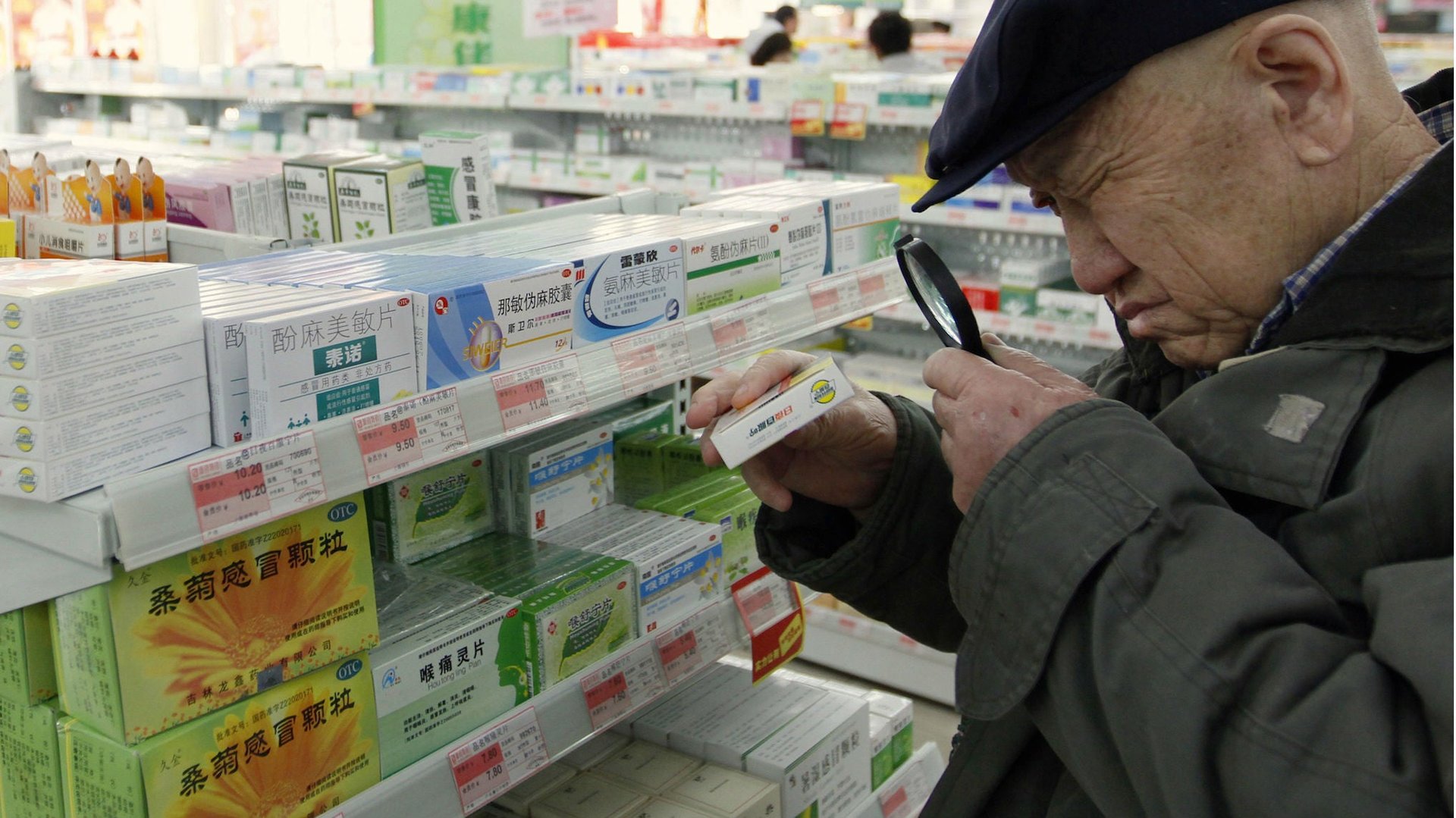Why bribery is rampant in China’s healthcare system
The imbroglio between Chinese officials and GlaxoSmithKline is just the tip of the iceberg when it comes to endemic corruption in China’s healthcare industry.


The imbroglio between Chinese officials and GlaxoSmithKline is just the tip of the iceberg when it comes to endemic corruption in China’s healthcare industry.
Today, Chinese officials barred the pharmaceutical giant from bringing its chief of finance, a British national, back home to the UK where the company is based. Chinese authorities are investigating GlaxoSmithKline for allegedly paying bribes of up to $3 billion renminbi ($489 million) to Chinese officials, doctors and medical associations to boost their sales as well as drug prices.
Over the last year, drug companies Pfizer and Eli Lilly & Co have faced charges of making improper payments in China. Chinese authorities are looking into the prices charged by 60 Chinese and foreign drug manufacturers. Here’s why bribery is such a problem in China:
Bribing is how hospitals and doctors make money
With the dismantling of agricultural collectives in the late 1970s, China’s formerly state-supported medical system lost its legs. Government funding was scaled back, and doctors and hospitals started deciding how much to charge for services and drugs, Yanzhong Huang, a senior fellow for global health at the Council on Foreign Relations, tells Quartz. “You could blame the entire system,” he said. “The introduction of the capitalist system while there was no rule of law…lack of funding, low government salaries—that all contributed.”
Now, it’s common for pharmaceutical firms to bribe doctors and hospitals to prescribe their medicine or buy their medical equipment. Doctors and nurses are still considered public servants and paid meager wages—as low as 800 renminbi in rural areas or 3,000 renminbi in larger cities ($130-$500) a month. As a result, they lean on bribes, sales at hospital pharmacies and operations for the bulk of their income. Last year, seven hospital staff in Shenzhen were jailed for accepting kickbacks. China’s former head of its food and drug agency was executed in 2007 for taking bribes.
The government can’t afford to raise salaries because it would be pressured to across all public sectors, Liao Ran, a program coordinator for East Asia at Transparency International, which tracks corruption, tells Quartz.
Patients also often have to pay “tips” to hospitals and doctors in order to be treated. When patients are seen, they end up paying for drugs and treatment they don’t need. “To increase profits, hospitals overtreat and overexamine,” Rao Keqin, party secretary of the Chinese Medical Association told the consultancy firm McKinsey, according to a report (pdf, p. 105) published in April.
Bribing is often the only way into the market
Drug makers often need to pay off officials for regulatory approval to license, import or manufacture their products in China. “International companies have to compete with Chinese domestic companies for the market. In [the GlaxoSmithKline case], they had to pay bribes to whoever, the government officials, the doctors, whoever is controlling entry to the market,” Liao said. International companies often rely on the help of local distributors or consultancies who have connections with regulators, but according to anti-corruption laws like America’s Foreign Corrupt Practices Act, companies can still be held responsible for bribes paid by intermediaries.
More sickness means more bribing
As demand for drugs and medical treatment grows in China, so does the demand for bribes. Healthcare spending in China is projected to almost triple by 2020 to $900 billion (paywall), from $275 billion in 2010. That’s driven by the fact that a growing number of Chinese can afford prescription drugs. An expanding aging population and the rising incidence of cancer—China’s rate of cancer death is four times as high as that of the US—also mean more demand for drugs.
The loser is the Chinese resident who faces high drug prices. Regulators have tried to put a ceiling on drug prices by making a list of “essential drugs” that can’t be priced above what the general public can pay. But manufacturers get around the rules by changing the names or packaging of drugs so they count as different products, or by simply not manufacturing them and forcing patients to buy costly alternatives, according to Huang.
Whether the GlaxoSmithKline investigation, possibly part of a broader corruption crackdown on the industry, will end rampant bribery remains to be seen. “All of this is associated with the progress of the healthcare reform and the larger environment…simply targeting foreign pharmaceutical firms wont actually solve—wont even touch the root cause of the problem,” Huang said.